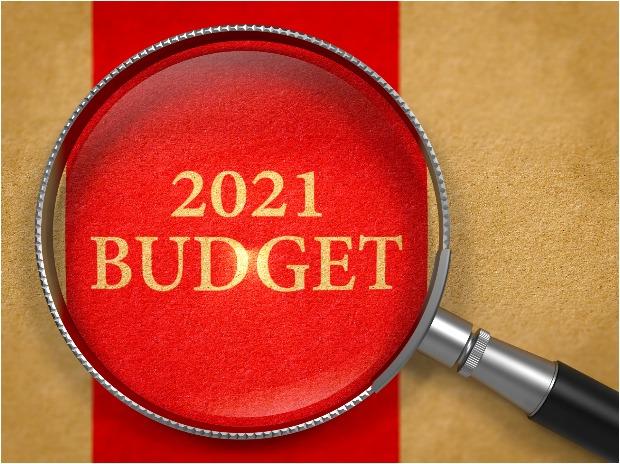[ad_1]
Finance Minister Nirmala Sitharaman has promised an extraordinary Budget to deal with the extraordinary fallout from the pandemic. Let’s look at some of the challenges she faces.
The economy was shattered by the pandemic and lockdown. It has seen once-in-a-lifetime contraction, and millions have suddenly been rendered unemployed. The highest priority for the finance minister will be to ramp up growth as much as possible, and to do this while providing maximum employment opportunities.
Weak government finances present another challenge. The Fiscal Deficit has expanded in 2020-21, due to low tax collections and missed disinvestment targets. This means the government has little room to expand expenditure further because the fiscal deficit could go out of control. It also means the government will have a massive market borrowing programme through 2021-22. That could crowd out private borrowing.
The government also faces two extraordinary big-ticket expenses. One is funding a vaccination programme for a vast population of 1.3 billion. This can perhaps be met by imposing cesses. However, the net effect of any cess will be to take money out of people’s pockets and thus reduce demand.
ALSO READ: Banking on Budget: The five areas of focus for FM Nirmala Sitharaman
The other major expenditure is an expansion of bank bailouts. The Reserve Bank’s projections in the latest Financial Stability Report indicate non-performing assets (NPAs) are slated to rise to very high levels. As the majority owner of most of the listed banks, the Government of India (GoI) will have to ensure that capital adequacy is maintained across the banks it controls.
At the same time, the GoI must also reckon with the fact that setting high revenue-generation targets may be unrealistic.
One bright spot is that an ambitious disinvestment programme may go through, albeit belatedly, if the bull run continues. However, in order to ensure the bull run continues, the government must avoid imposing higher capital gains tax or securities transaction tax, etc, or else risk an adverse impact.
Tax revenues present a puzzle. Raising tax rates at this moment would hurt demand. Even if growth is excellent through 2021-22, the economy will expand to around the size it was in December 2019, only by the fourth quarter (January-March 2022). This means tax collections are unlikely to be stronger than in 2019-20, even though tax collection will surely improve compared to 2020-21. Spectrum auctions could also receive a weak response, given the state of the telecom sector’s finances where two of the three majors are struggling.
ALSO READ: Banking on Budget: Keeping an eye out for growth focus, PSU reforms
Raising customs duties, as has been the recent trend, could be a double-edged measure. If the economy is to grow quickly, a rise in imports will be necessary. If imports are made more expensive by imposing higher customs duties or by casting a broader net for customs duties, as has happened through the last two fiscals, such measures could impact growth negatively.
So, expenditure will go up, but revenue may be down. What can the Budget do? Whatever policies are adopted will be somewhat of a gamble.
If the Budget tries to push consumption demand and increase employment, it should ideally increase government expenditure and cut taxes to put money in people’s pockets. But as mentioned above, that runs the risk of the fiscal deficit going out of control.
On the other hand, a Budget that attempts to raise more taxes will retard economic recovery. Either way, the Budget also needs to look at rationalising policy to improve ease of doing business and encourage more investment.
The best shot is probably to try and encourage more investment in infrastructure such as road-building, city gas network rollouts, etc. For example, the government may try to do this by tweaking the terms of hybrid annuity contracts to give road developers an easier ride.
Infrastructure creation involves construction and requires basic materials like steel and cement. The construction sector is the biggest employment generator. Higher off-take of cement and steel will also help in economic revival.
In terms of sentiment, a liberal budget that does cut taxes and tries to improve ease of doing business will receive a good market response. A harsh Budget with higher taxes, new cesses and higher customs duties will, on the other hand, lead to a sell off.
As of now, the market trend has been very positive for months. The major indices are all near their all-time highs. Valuations for the Nifty and Sensex and also for midcaps are running at PE 35x or more (calculated on the weighted earnings of the last four quarters according to the National Stock Exchange).
We can reasonably expect double-digit rebound in earnings given the low base of 2020-21. But fundamentally justifying PE-35 would imply earnings per share growth of similar levels of 30-35 per cent and that is very unlikely. Historically speaking, the median market PE has usually been in the range of 18-20, so the market does seem overvalued.
Overseas sentiment about India Inc is more optimistic than local sentiment. The bull run has been almost entirely driven by the foreign portfolio investors who have invested Rs 2.4 trillion equivalent in the financial year 2020-21. The domestic institutions have pulled out Rs 1.09 trillion during the fiscal 2020-21. Equity mutual funds have seen their assets under management growing from Rs 5.08 trillion (March 2020) to Rs 9.06 trillion (Dec 2020) in the current fiscal. But there have also been net redemptions to the tune of Rs 21,293 cr between April and December 2020.
Sooner or later, market sentiment will realign to discount the ground reality. The Budget could play a large role in shaping sentiment along with either accelerating or retarding the revival. Optimists have already started discounting expected policies.
However, even with anticipated good growth, the contraction experienced during 2020-21 will not be overcome until the end of 2021-22. If government finances are mismanaged, or the Budget policy, whatever that is, does not work as planned, there could be a very severe market correction.
[ad_2]
Source link











